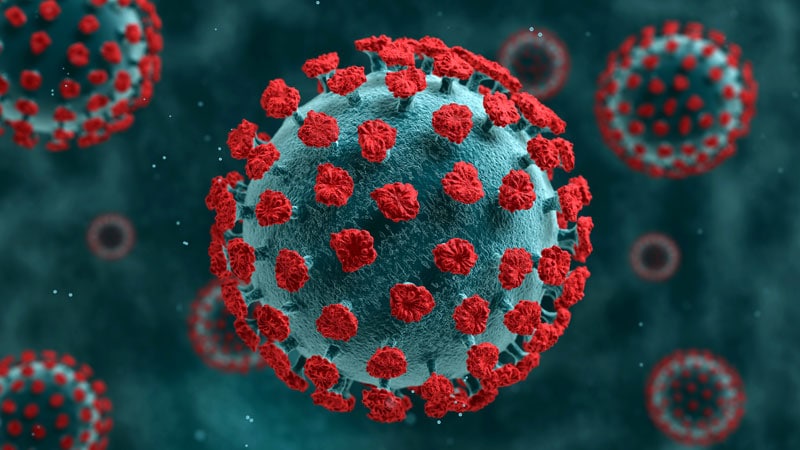المفاهيم الأساسية
SARS-CoV-2 infection may trigger achalasia development.
الملخص
New evidence suggests a link between SARS-CoV-2 infection and the rapid onset of achalasia, an esophageal motility disorder. The study compared patients with post-COVID-19 achalasia, pre-existing achalasia, and achalasia without COVID-19 history. The presence of SARS-CoV-2 proteins in esophageal muscle tissue correlated with inflammatory responses, indicating a potential association between the virus and achalasia development.
TOPLINE:
SARS-CoV-2 infection may lead to achalasia development.
METHODOLOGY:
Achalasia's cause is unclear, with viral infections like SARS-CoV-2 being a potential trigger.
Study compared post-COVID-19 achalasia, pre-existing achalasia, and achalasia without COVID-19 history.
Tested for SARS-CoV-2 proteins and inflammatory markers in esophageal muscle tissue.
TAKEAWAY:
Post-COVID-19 achalasia patients showed high levels of SARS-CoV-2 proteins and inflammatory markers.
S protein was detected in muscle tissue samples from post-COVID-19 achalasia patients.
Presence of S protein unrelated to vaccination status.
IN PRACTICE:
Study authors linked SARS-CoV-2 proteins in esophageal tissue with sustained inflammatory responses.
SOURCE:
Study by Salih Samo, MD, MS, University of Kansas School of Medicine, published in the American Journal of Gastroenterology.
LIMITATIONS:
Small sample size and unknown SARS-CoV-2 variants limit definitive conclusions.
DISCLOSURES:
Study had no specific funding; author reported relationships with various companies.
SARS-CoV-2 a Possible Trigger for Achalasia
الإحصائيات
"Group 1 patients had the highest levels of the N protein in all four cases and higher levels of the S protein in the two confirmed cases."
"The presence of mRNA for SARS-CoV-2 N protein correlated with a significant increase in inflammatory markers."
اقتباسات
"Our findings not only show the continued presence of SARS-CoV-2 proteins in esophageal muscle tissue isolated from subjects with achalasia post infection, but they further correlate this with the presence of a sustained inflammatory response."
الرؤى الأساسية المستخلصة من
by Megan Brooks في www.medscape.com 02-13-2024
https://www.medscape.com/viewarticle/sars-cov-2-possible-trigger-achalasia-2024a100032p
استفسارات أعمق
How does the potential link between SARS-CoV-2 and achalasia impact post-COVID-19 care?
The potential link between SARS-CoV-2 and achalasia can significantly impact post-COVID-19 care by highlighting the need for monitoring and managing potential long-term complications related to the virus. Healthcare providers should be aware of the possibility of achalasia development in individuals who have had a SARS-CoV-2 infection, especially considering the rapid onset of the condition observed in some cases. This underscores the importance of comprehensive post-COVID-19 follow-up care to detect and address such complications promptly. Additionally, understanding this association can lead to tailored treatment strategies for individuals with post-COVID-19 achalasia, potentially improving their overall outcomes and quality of life.
What are the implications of the study's limitations on understanding the relationship between SARS-CoV-2 and achalasia?
The study's limitations, such as the small sample size and the lack of information on the specific SARS-CoV-2 variants involved, have implications for understanding the relationship between SARS-CoV-2 and achalasia. The small sample size may limit the generalizability of the findings and the ability to draw definitive conclusions about the causative role of SARS-CoV-2 in achalasia development. Additionally, not knowing the specific SARS-CoV-2 variants could impact the interpretation of results, as different variants may have varying effects on the development of achalasia. These limitations highlight the need for further research with larger sample sizes and detailed variant information to better elucidate the relationship between SARS-CoV-2 and achalasia.
How can the findings of this study contribute to the broader understanding of viral triggers for rare medical conditions?
The findings of this study can contribute to the broader understanding of viral triggers for rare medical conditions by shedding light on the potential role of viral infections, particularly SARS-CoV-2, in the development of conditions like achalasia. Understanding how viral infections may lead to the onset of rare medical conditions can provide valuable insights into the underlying mechanisms of disease pathogenesis. This knowledge can inform future research into the interactions between viruses and the human body, potentially uncovering common pathways or immune responses that contribute to the development of various rare conditions. By expanding our understanding of viral triggers for rare medical conditions, we can improve diagnostic approaches, treatment strategies, and preventive measures for these conditions in clinical practice.
0
